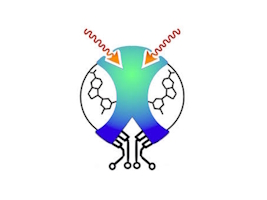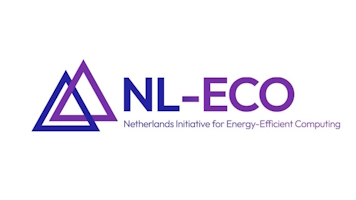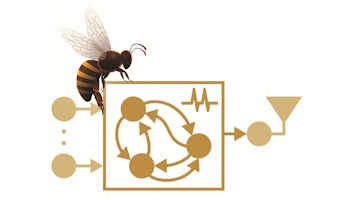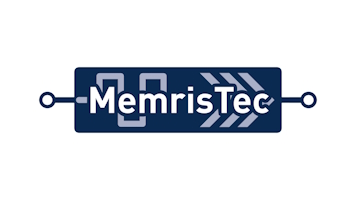Current Funded Projects
Our lab is actively engaged in a range of cutting-edge, interdisciplinary projects funded by national and international agencies. These initiatives reflect our commitment to advancing scientific understanding and technological innovation in neuroscience, nanotechnology, and environmental systems. Below is a list of our ongoing funded projects:

InsectNeuroNano
Project Researcher: Raluca Chitic
Funded through the European Union's Horizon Europe program, this project aims to develop nanophotonic on-chip devices, inspired by the insect central complex, for integrated sensing and neural computation. It seeks to recreate the pathway from polarized light detection in an insect eye to compass-like memory circuits—ultimately paving the way for autonomous navigation without GPS.

NL-ECO
Project Researcher: Alejandro P. Zurro
Part of the Dutch National Science Agenda (NWA), NL‑ECO brings together 33 academic, industrial, and societal organizations to dramatically reduce the energy consumption of information and communication technology (ICT). Focused on brain-inspired computing, neuromorphic architectures, and new chip materials, the collaboration includes institutions like the University of Groningen and TU Delft. Recent outreach includes animation and a national white paper on neuromorphic computing in the Netherlands.

SWIMS
Project Researcher: Giuseppe Leo
Stochastic Spiking Wireless Multimodal Sensory Systems ERC Synergy project, which uses neuromorphic architectures to implement smart wireless multimodal sensory systems. The focal point of his PhD project is to develop novel recurrent spiking neural network (rSNN) architectures inspired by the brain of insects, leveraging their ultra-low energy consumption.
NeuroTACT
Project Researcher: Federico Loi
The NeuroTACT project brings together PhD students across different research groups to develop next-generation tactile sensory systems. The focus is on integrating piezoelectric-based flexible sensors with neuromorphic circuit architectures to enable energy-efficient, high-resolution tactile perception. These systems are designed for use in robotics and prosthetics, aiming to mimic biological touch with minimal power consumption and high adaptability.

memTDE
Project Researchers: Hugh Greatorex, Renzo Barrazza
Memristive Time Difference Encoder (MemTDE), focuses on the characterization and integration of memristors into a CMOS chip. The goal is to harness memristor memory behavior to realize a Time Difference Encoder (TDE) hardware primitive for low-power event-based sensory processing.
SmartEN
Project Researcher: T. J. Pina
The SmartEN project takes a multidisciplinary approach to developing novel systems for odour sensing and processing. Combining expertise in brain-inspired, event-based processing with innovative sensing materials, it aims to create efficient, adaptive, and scalable solutions. The project brings together cutting-edge research in materials science, neuromorphic computing, and systems and control theory conducted at the Groningen Cognitive Systems and Materials Center (CogniGron).
SNS Project
Collaborating partner
The SNS Project, or Self-Healing Neuromorphic Systems, is a Dutch research initiative aimed at creating ultra-low-power Edge-AI processors that are one hundred times more energy-efficient and able to self-heal by adapting automatically to faults or environmental changes without the need for offline retraining. Its approach draws on biologically inspired mechanisms such as online learning, attention processes, and homeostatic plasticity, applying them across the full computing stack from devices and circuits through architecture to complete systems. The consortium is coordinated by Eindhoven University of Technology and includes TU Delft, CWI, IMEC-NL, Innatera, and the University of Groningen as a collaborating partner. The project is funded by the Dutch Research Council (NWO).
